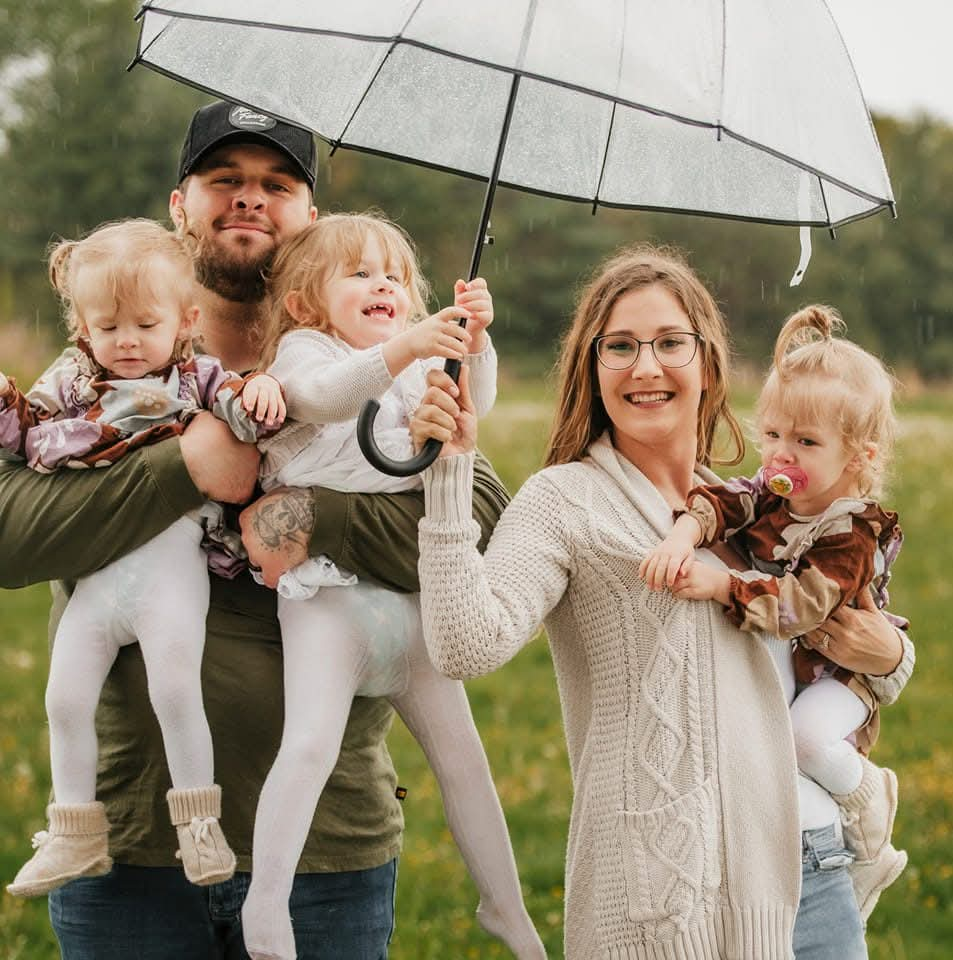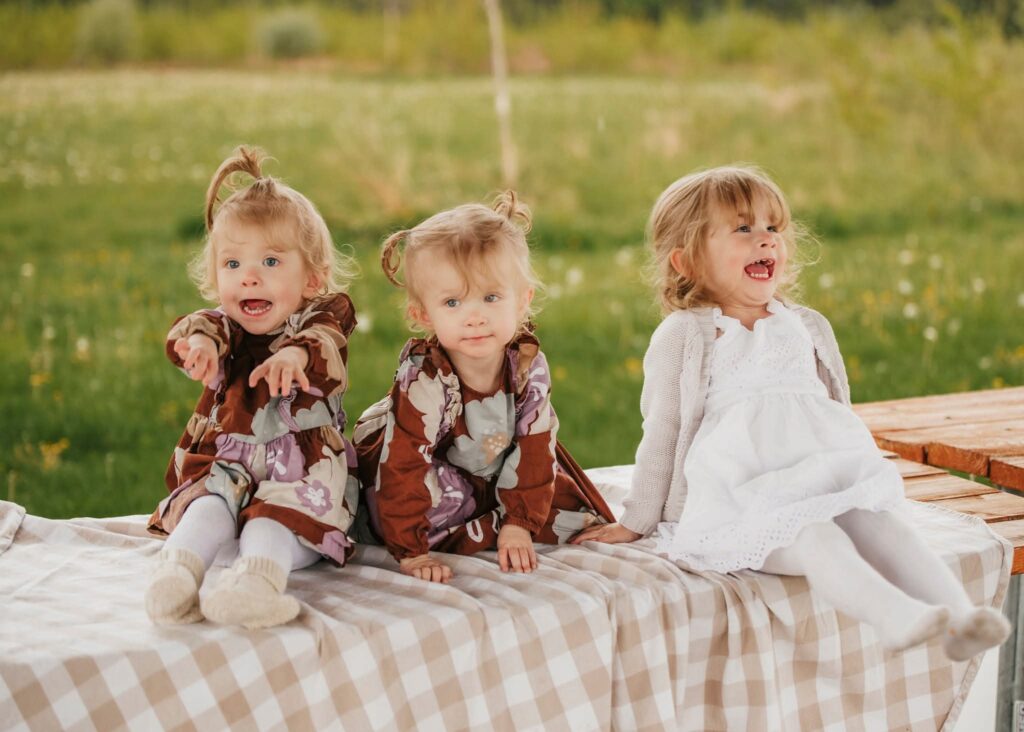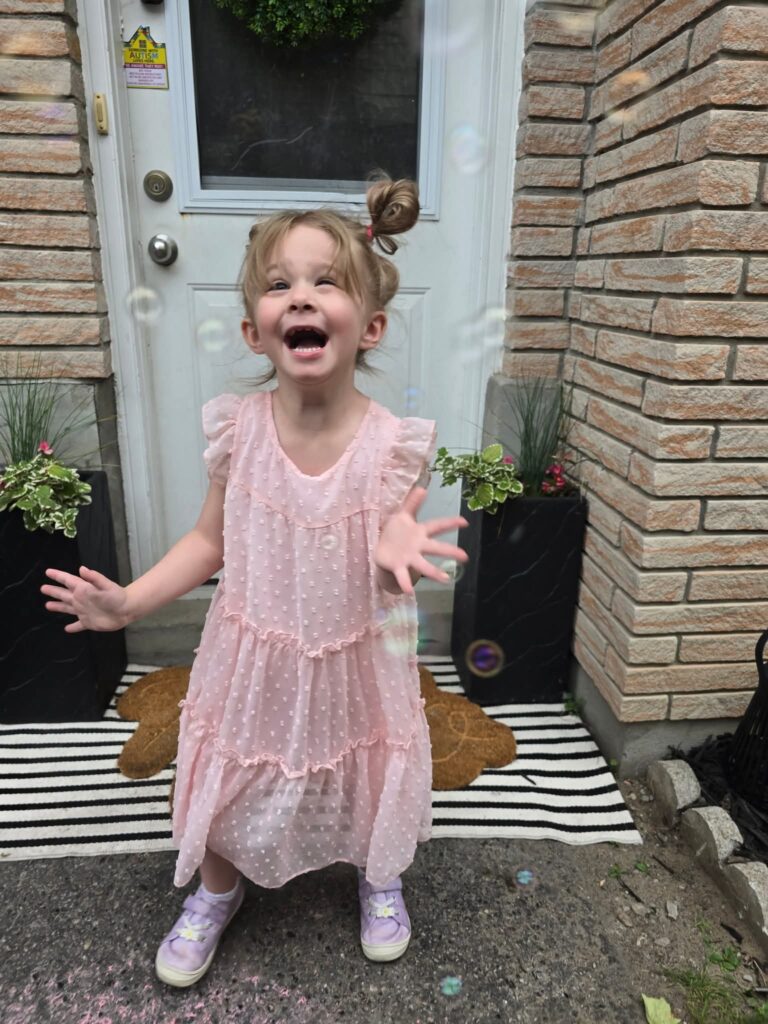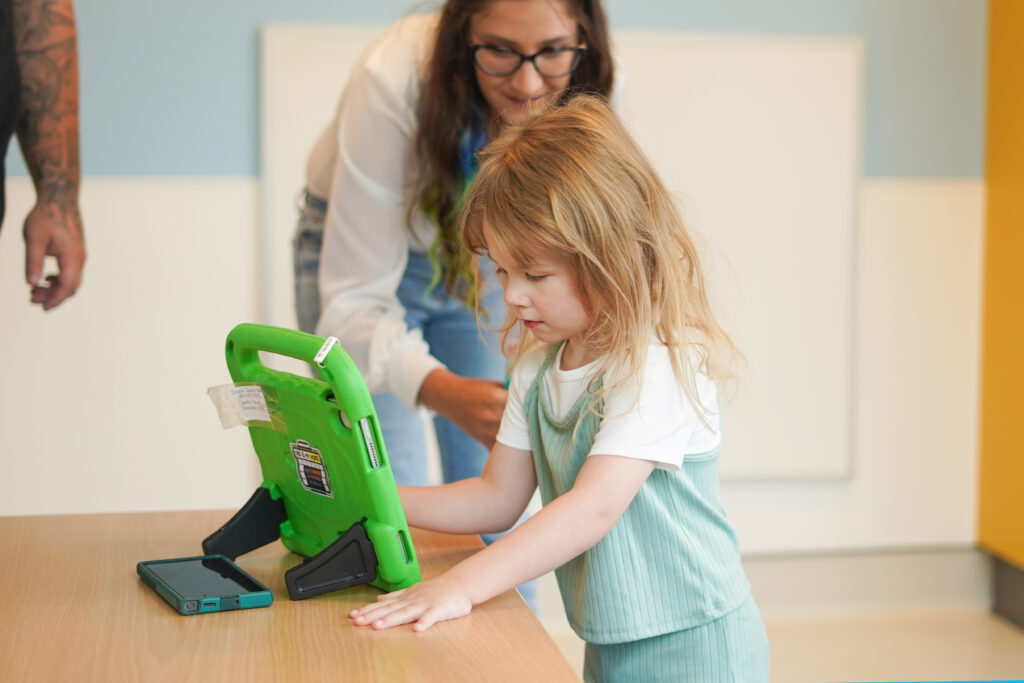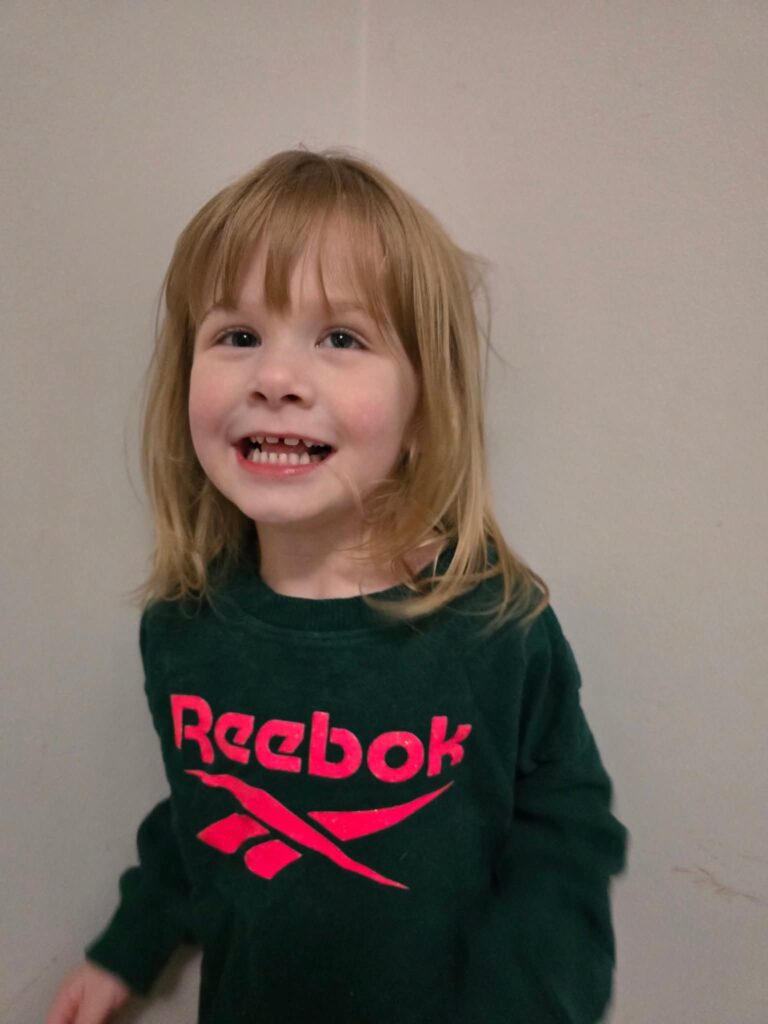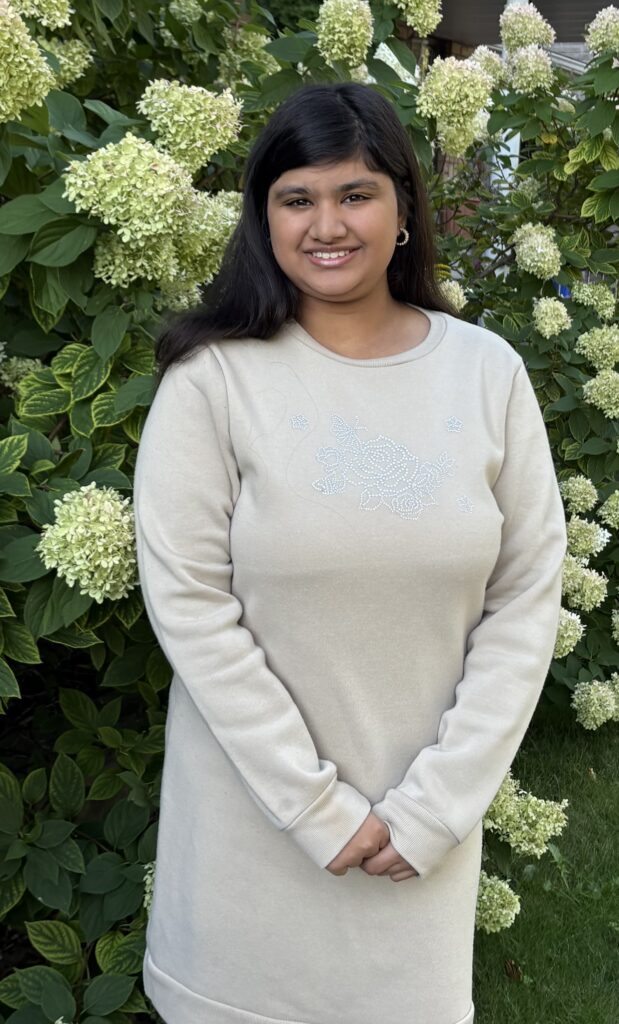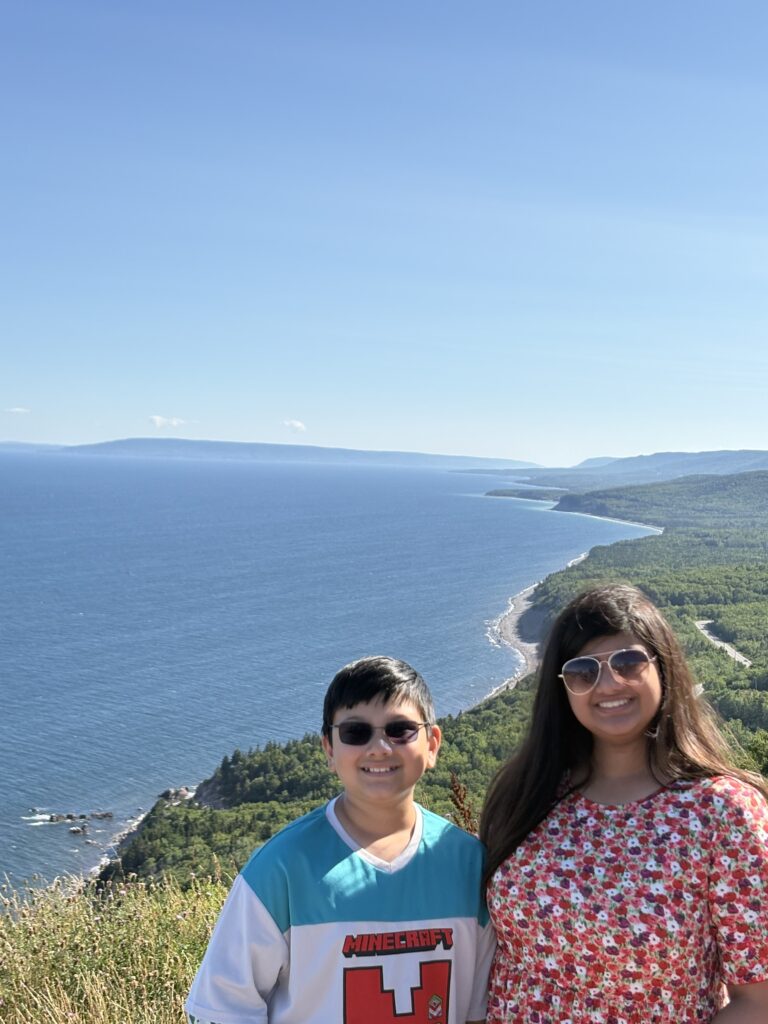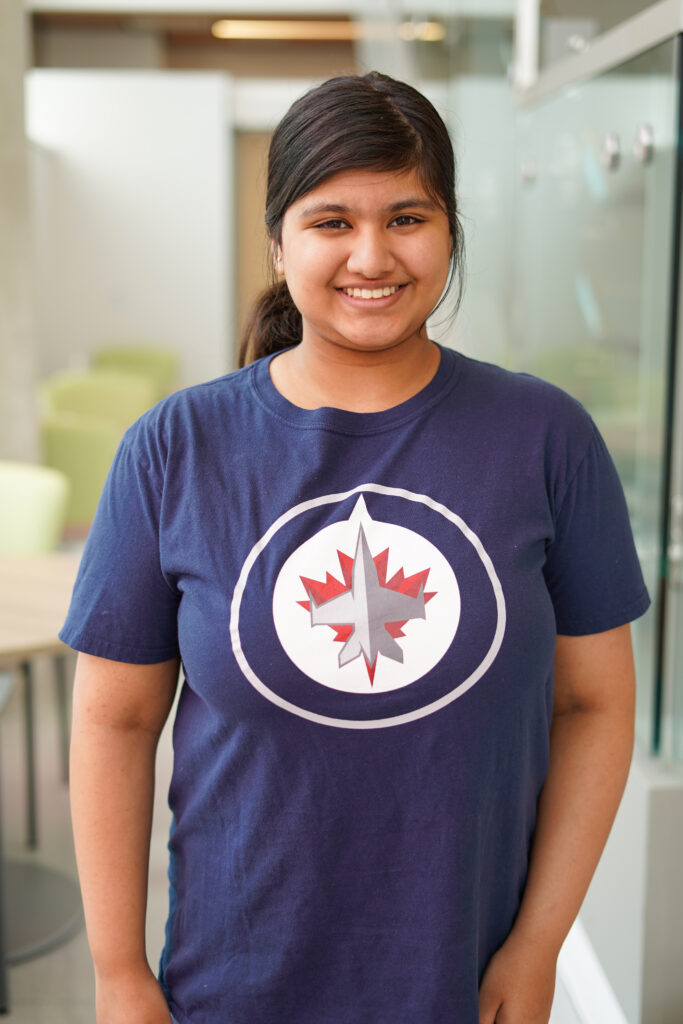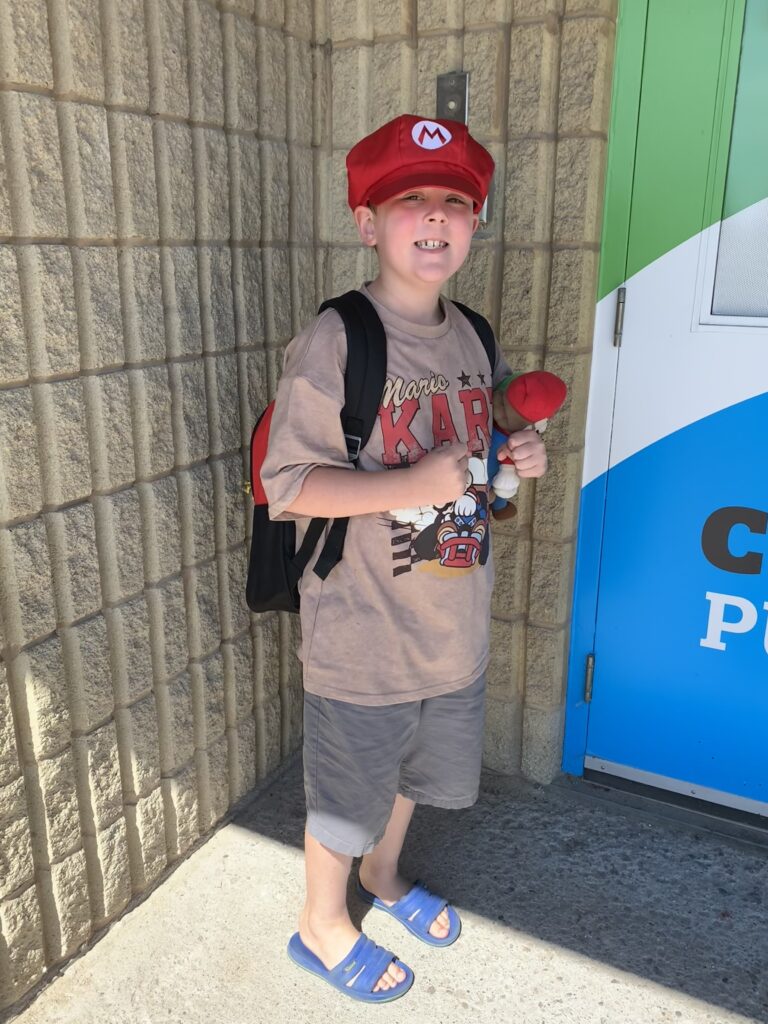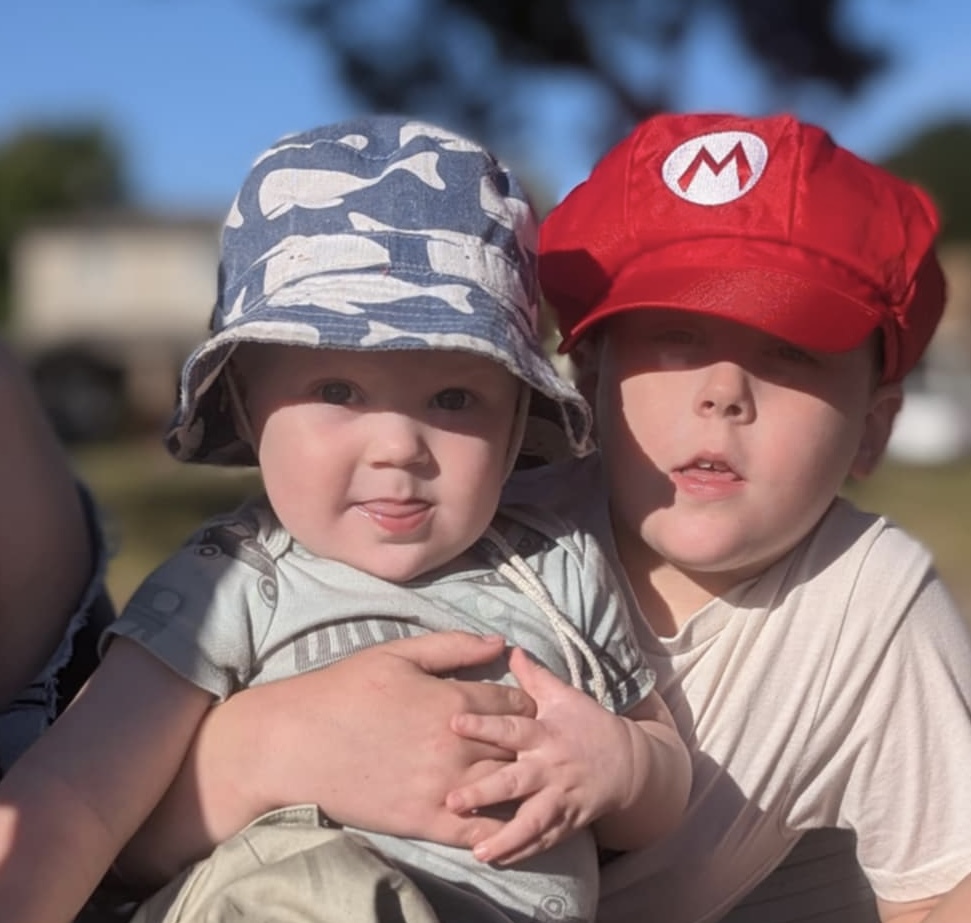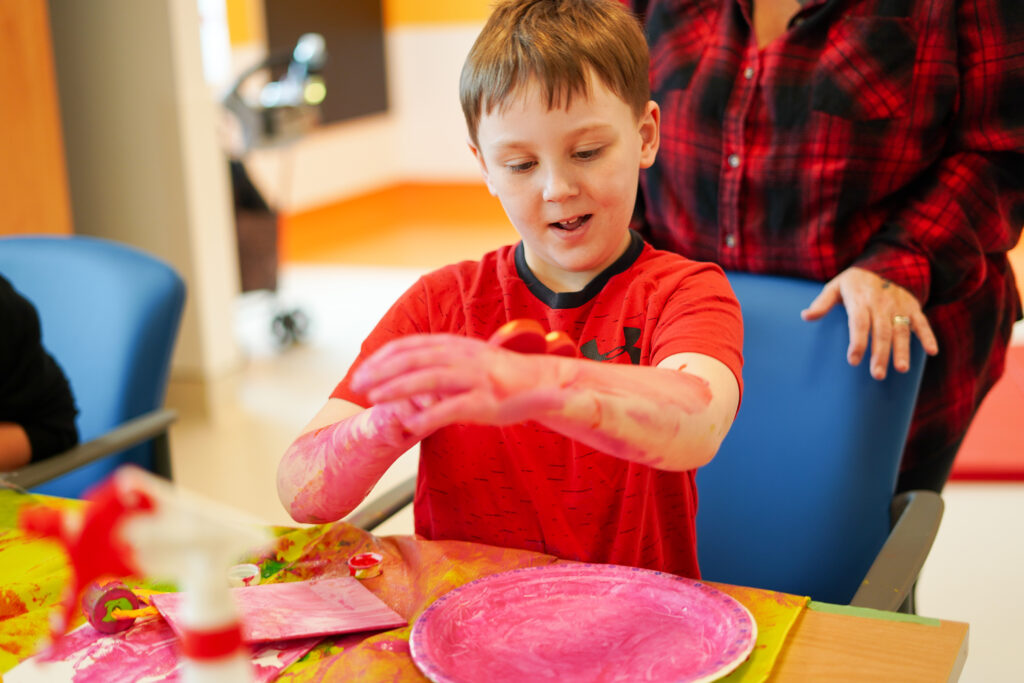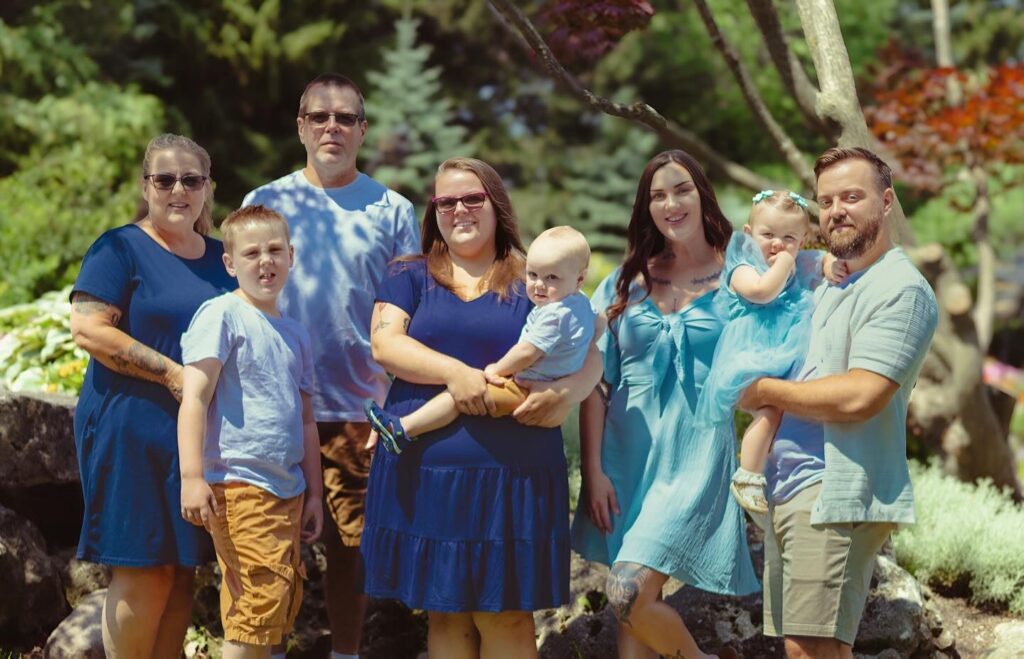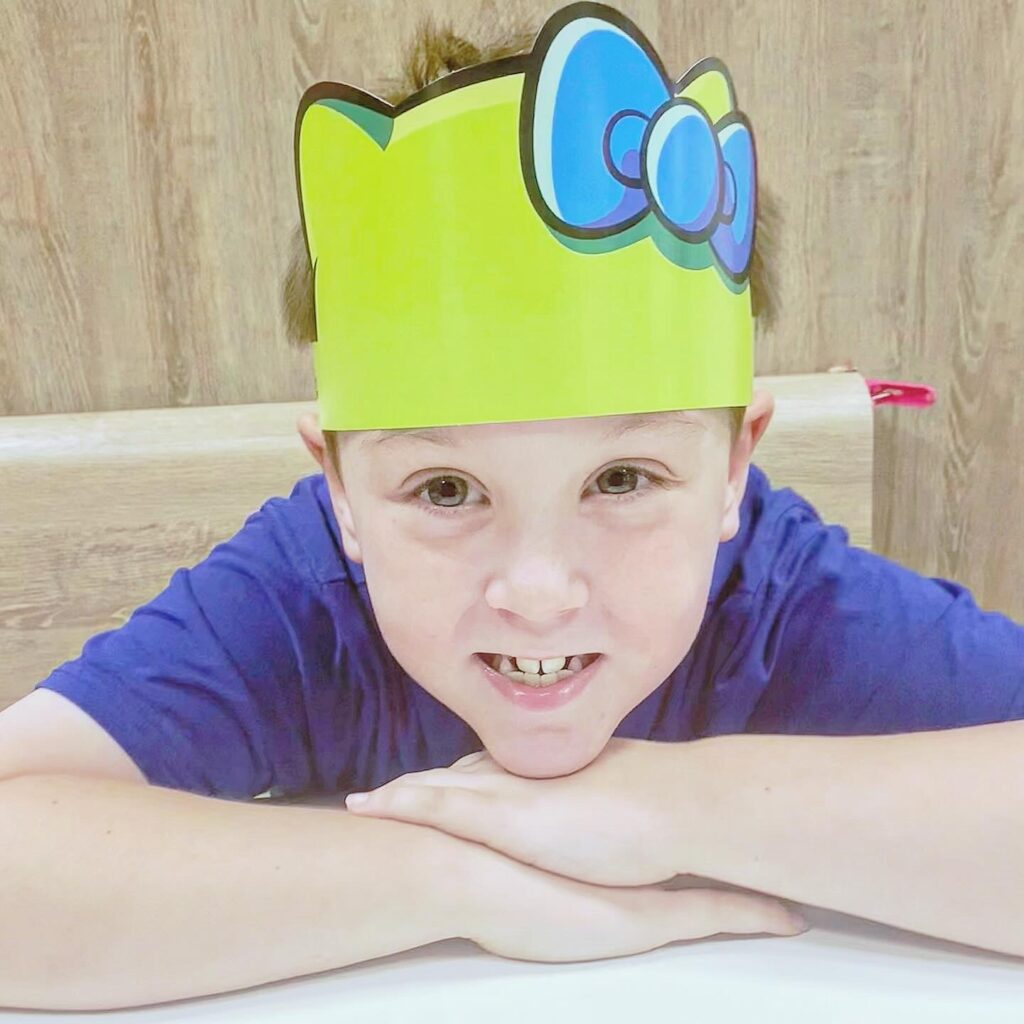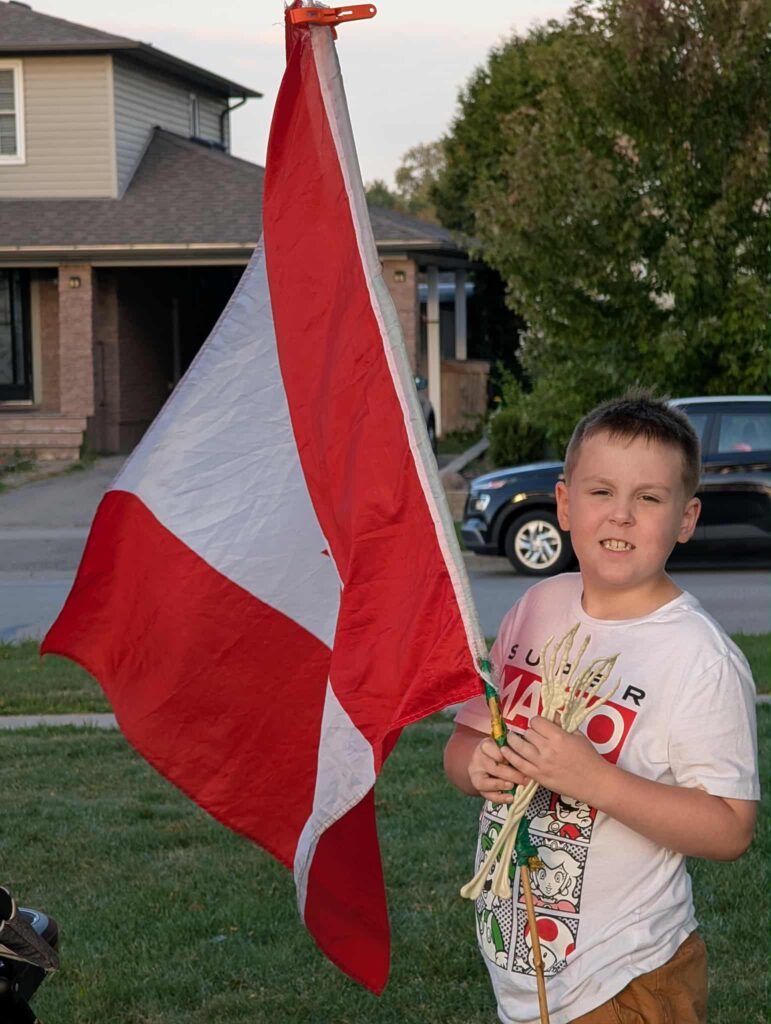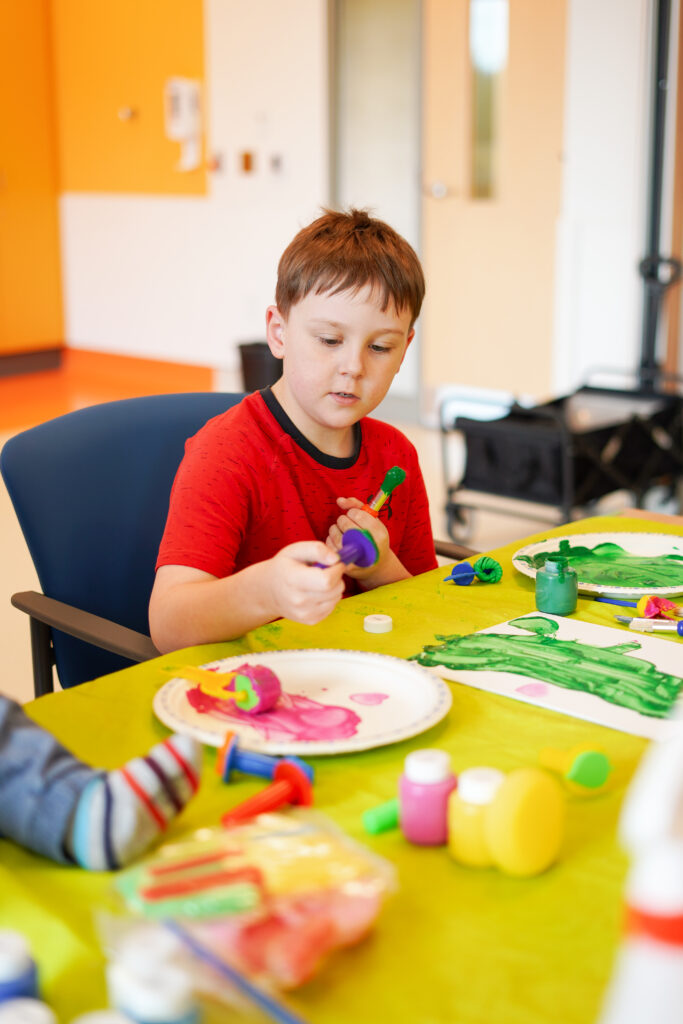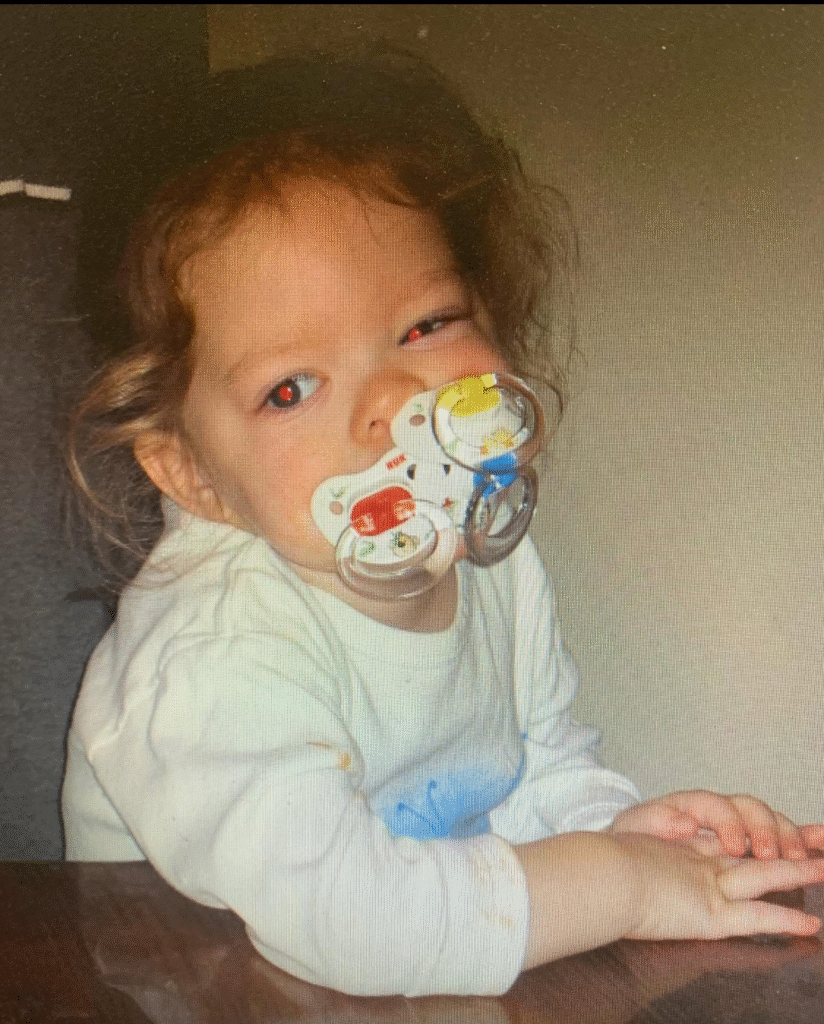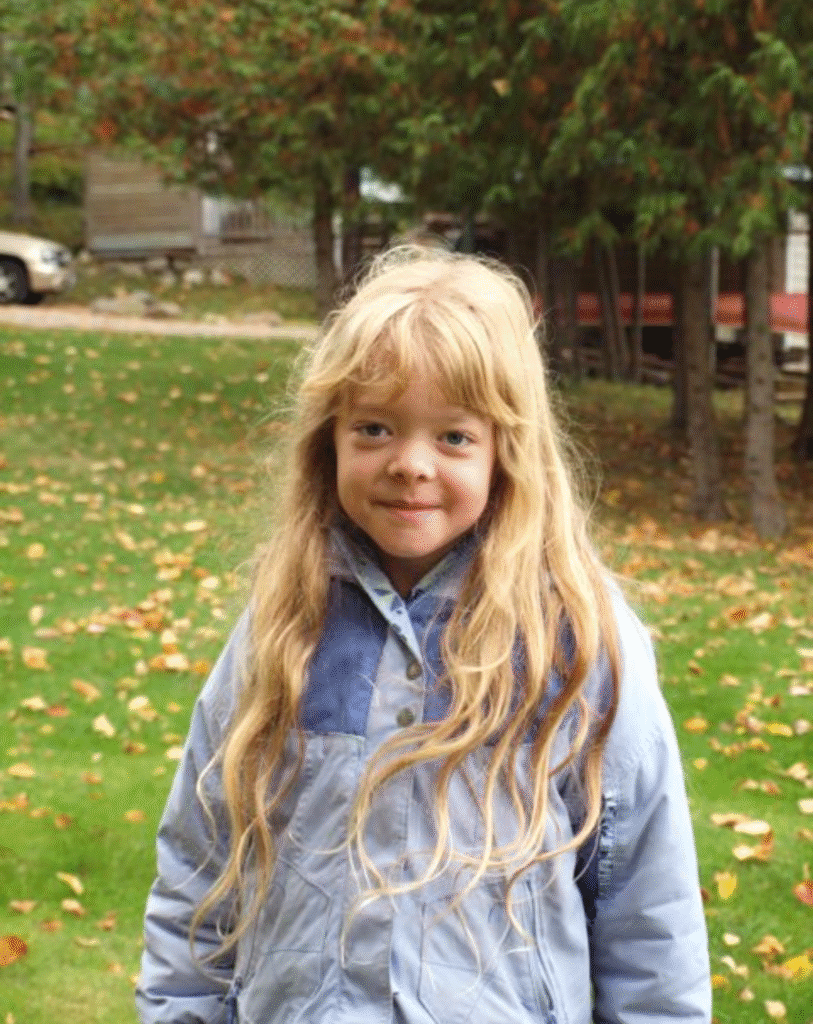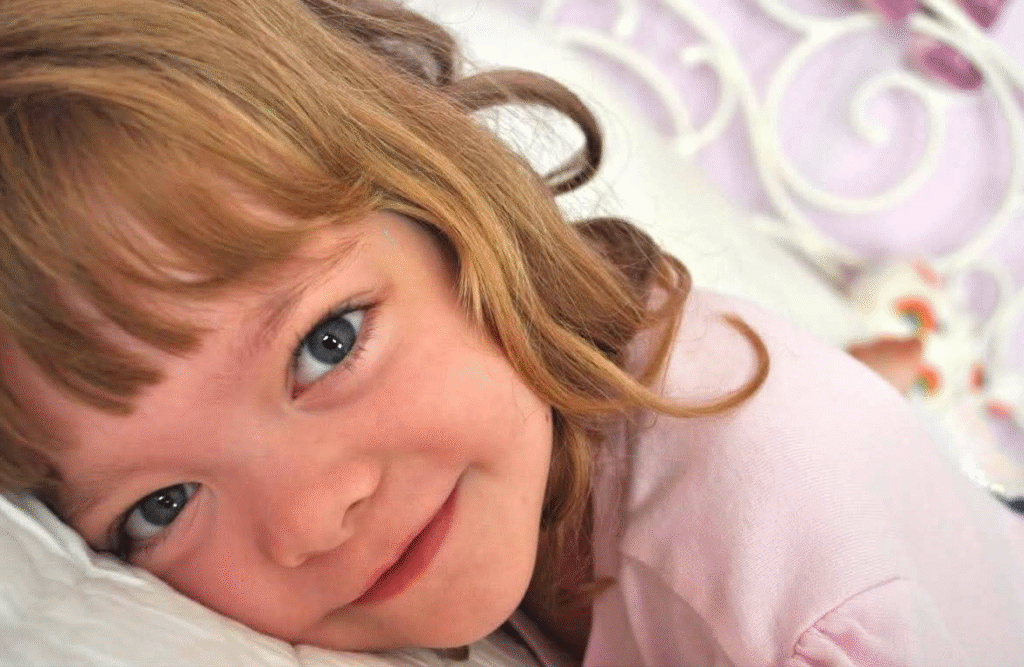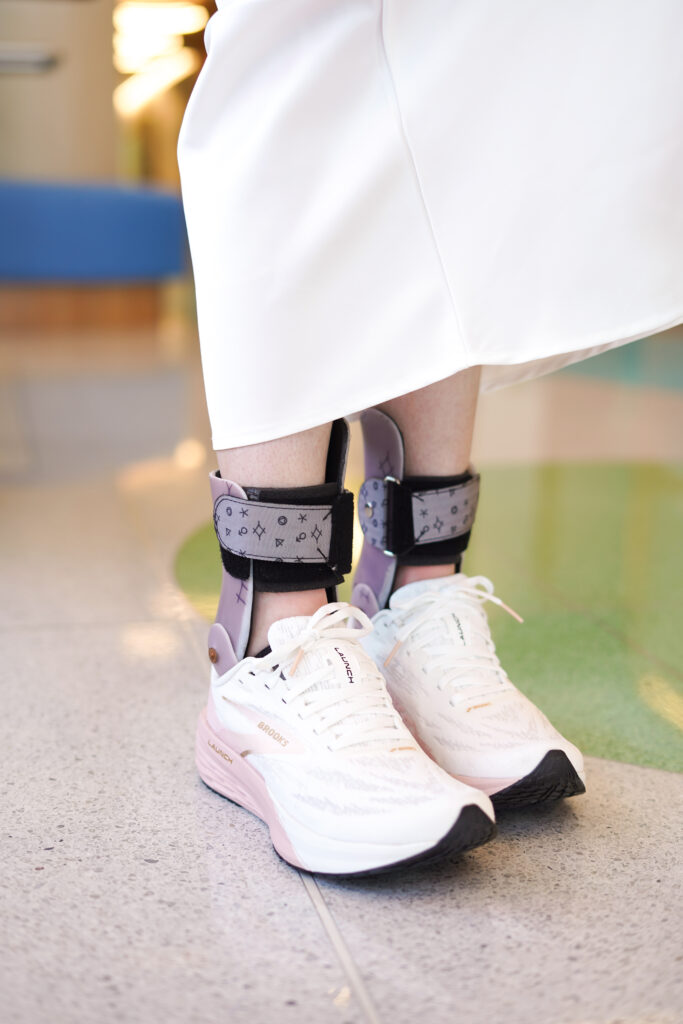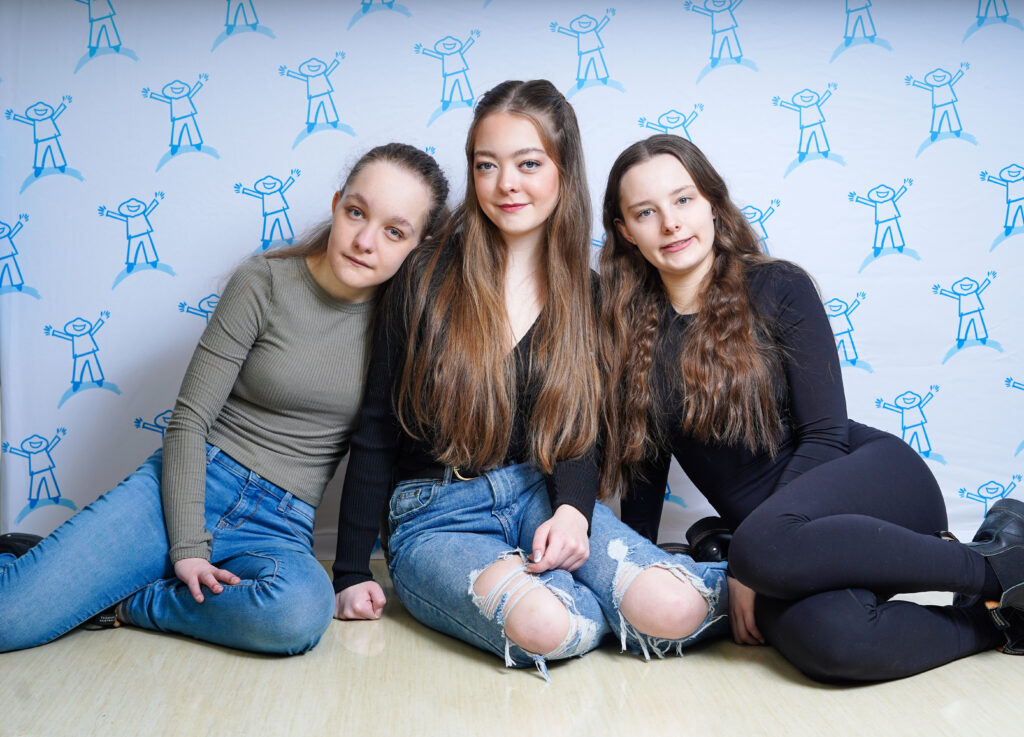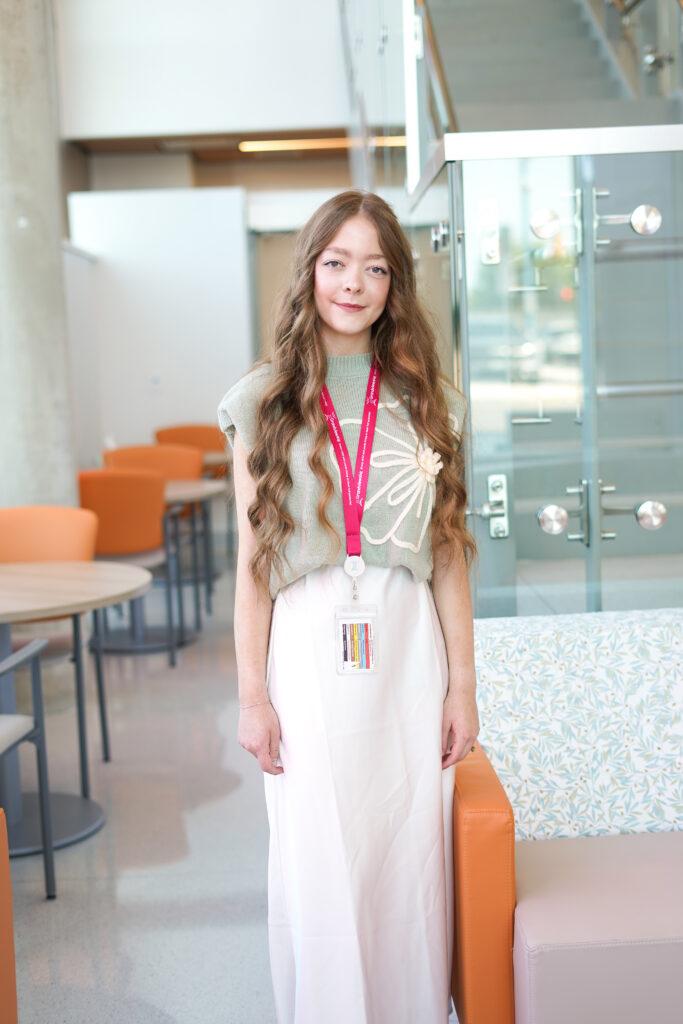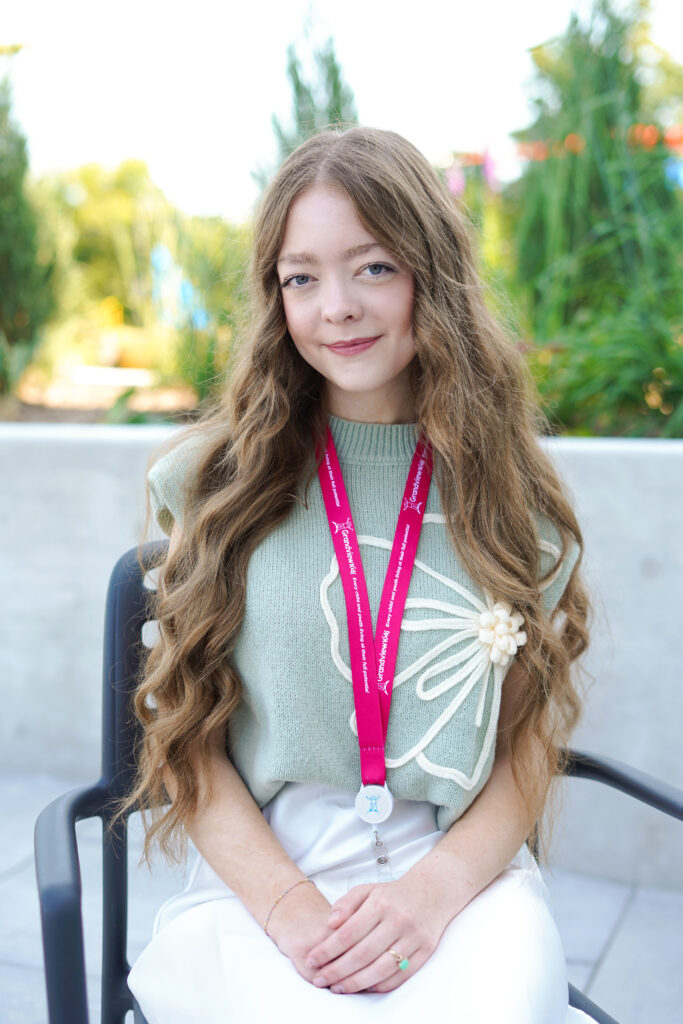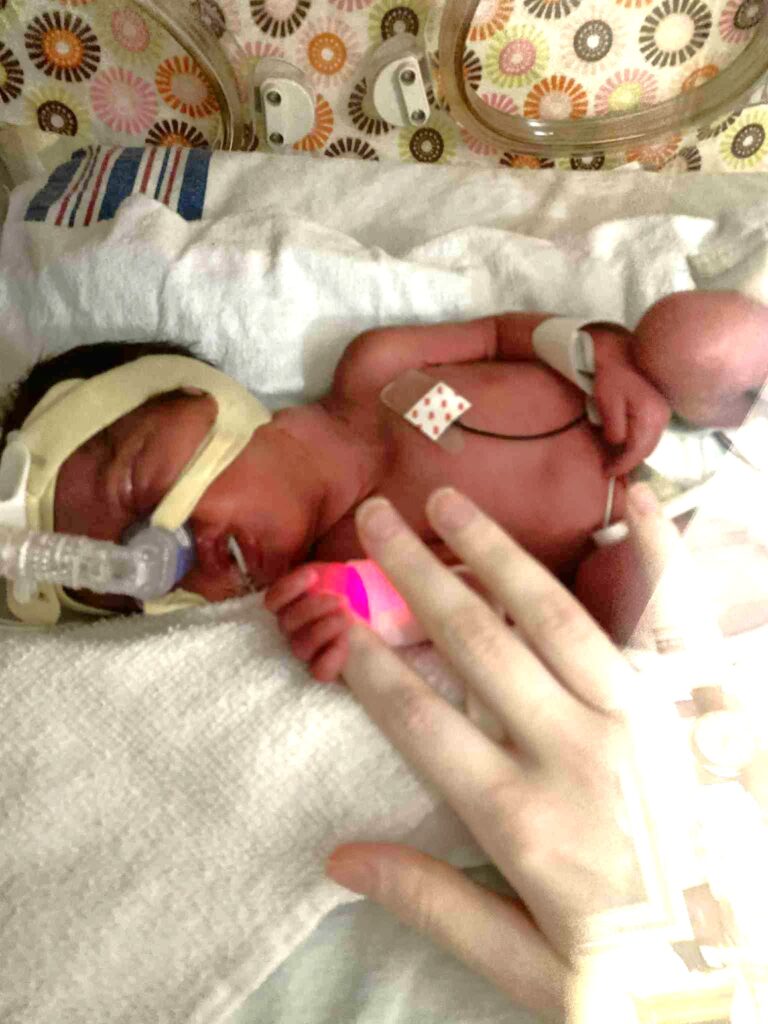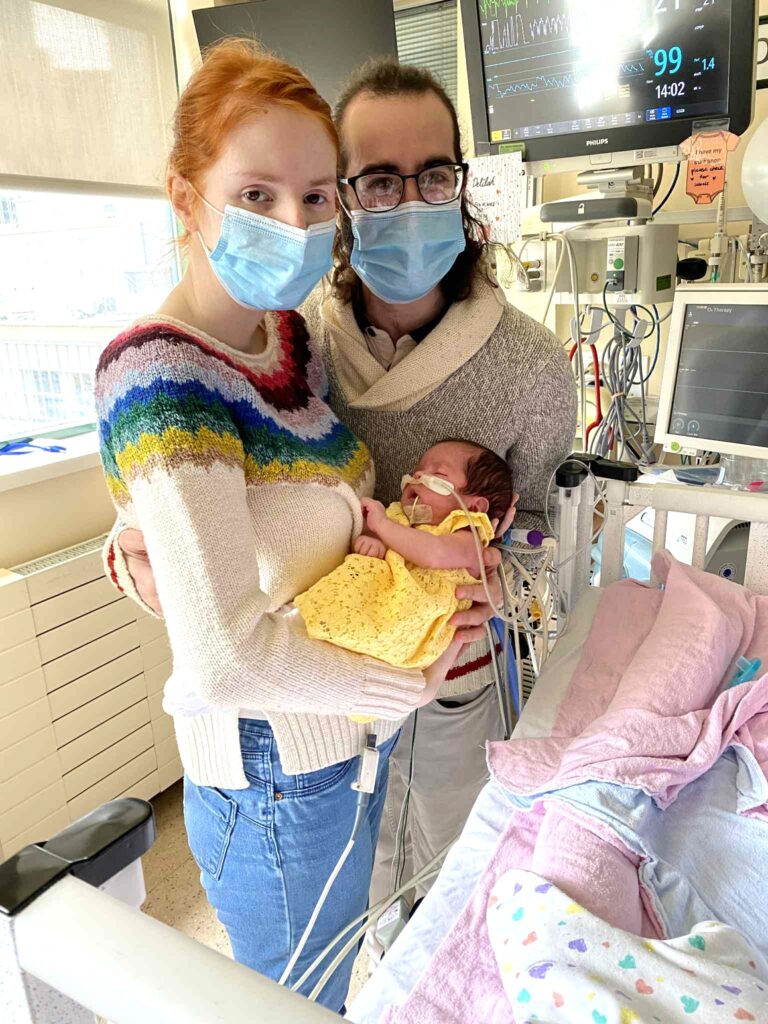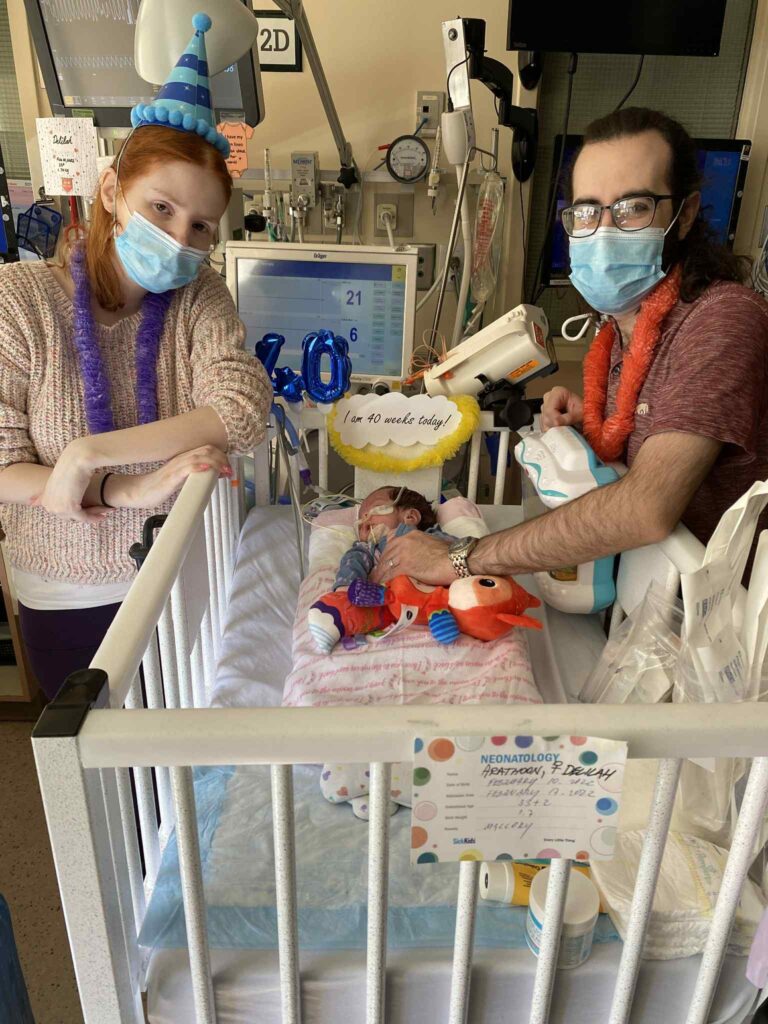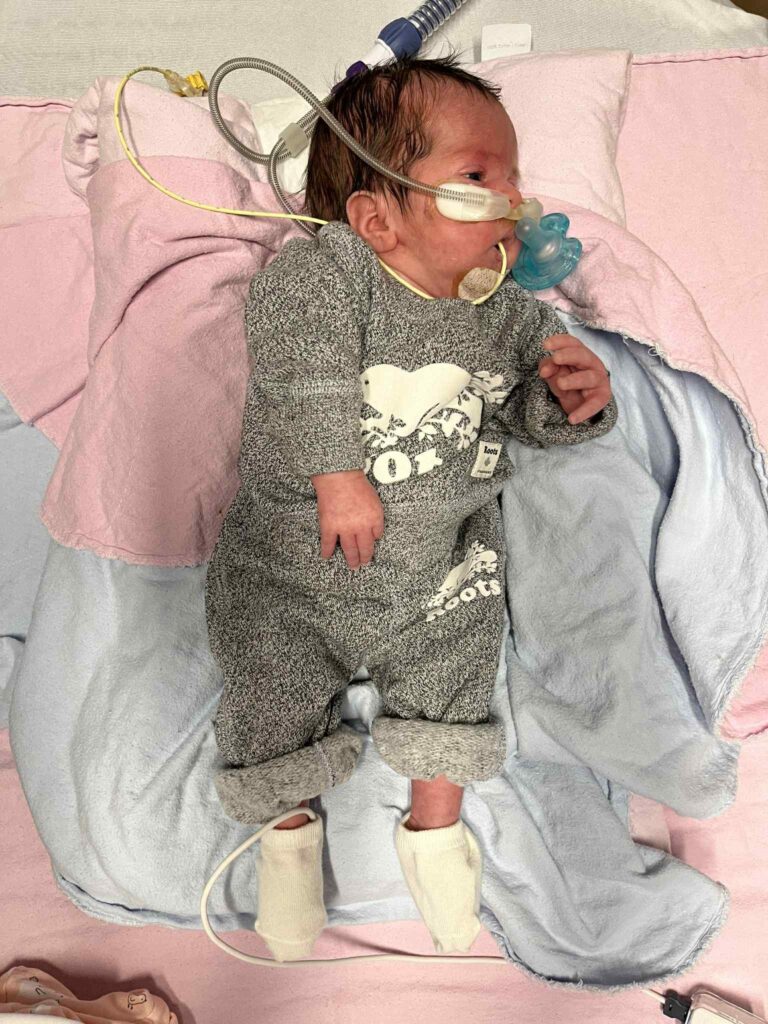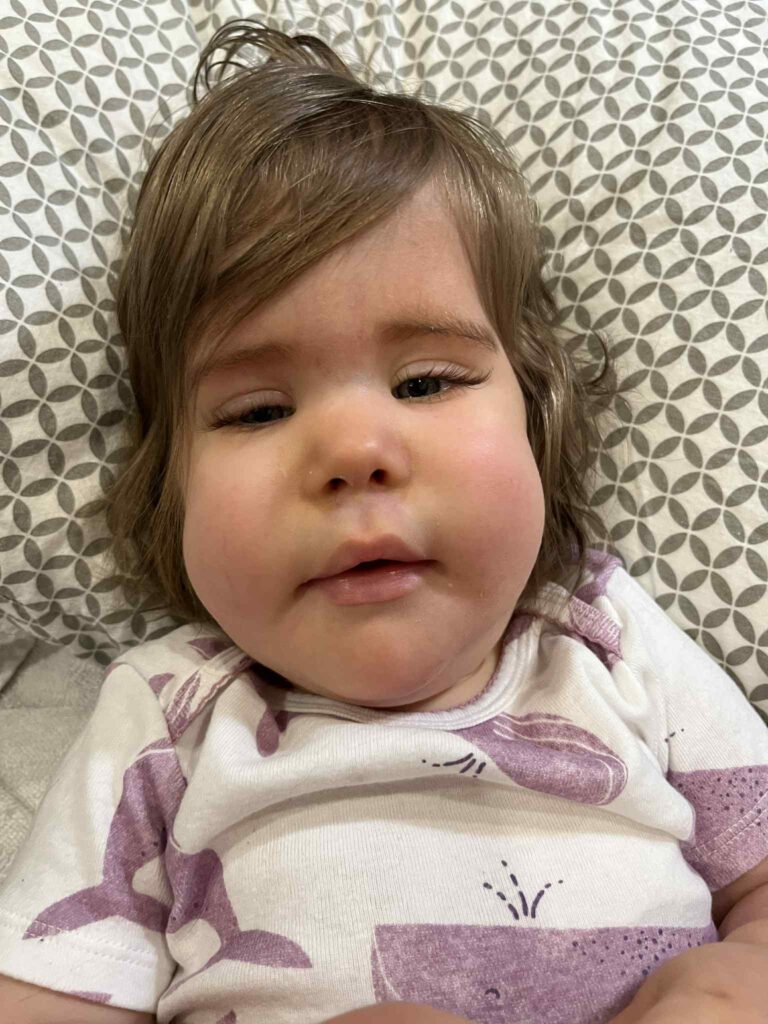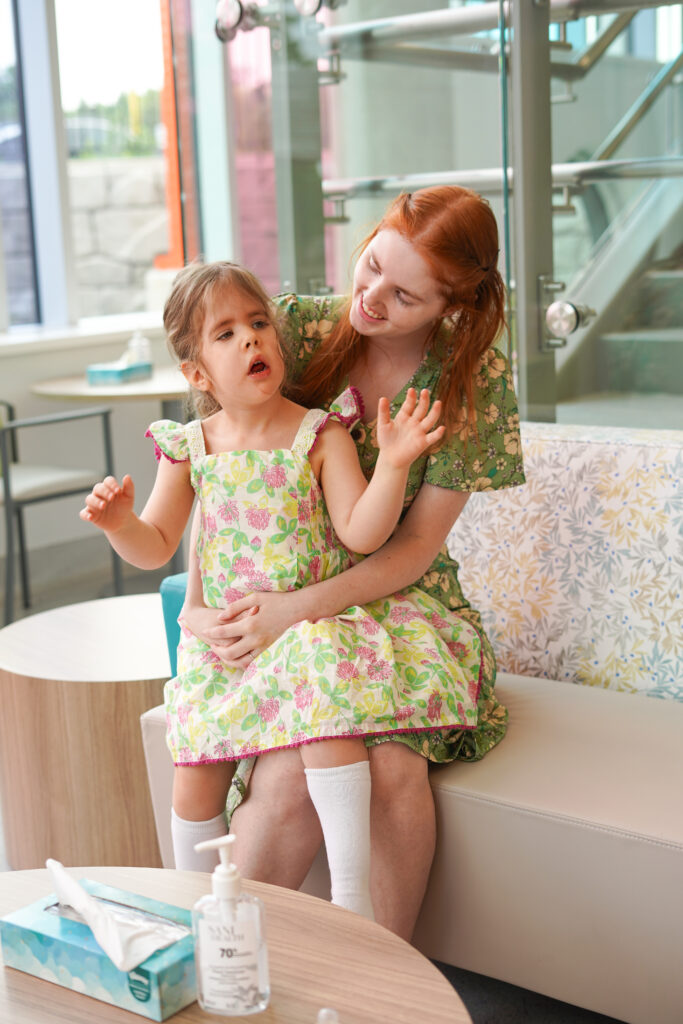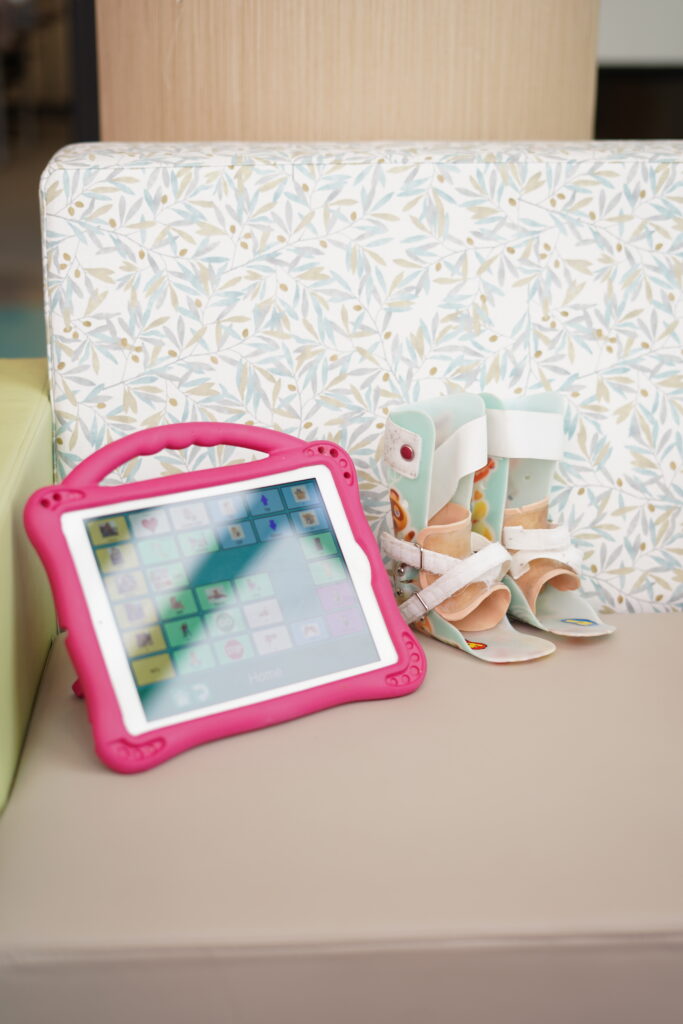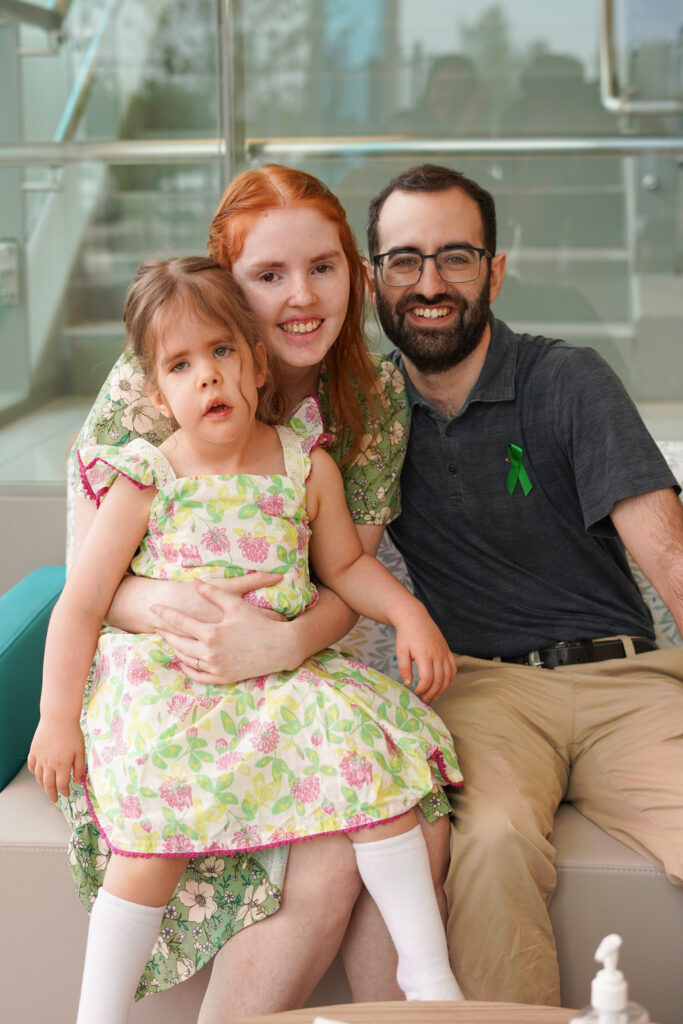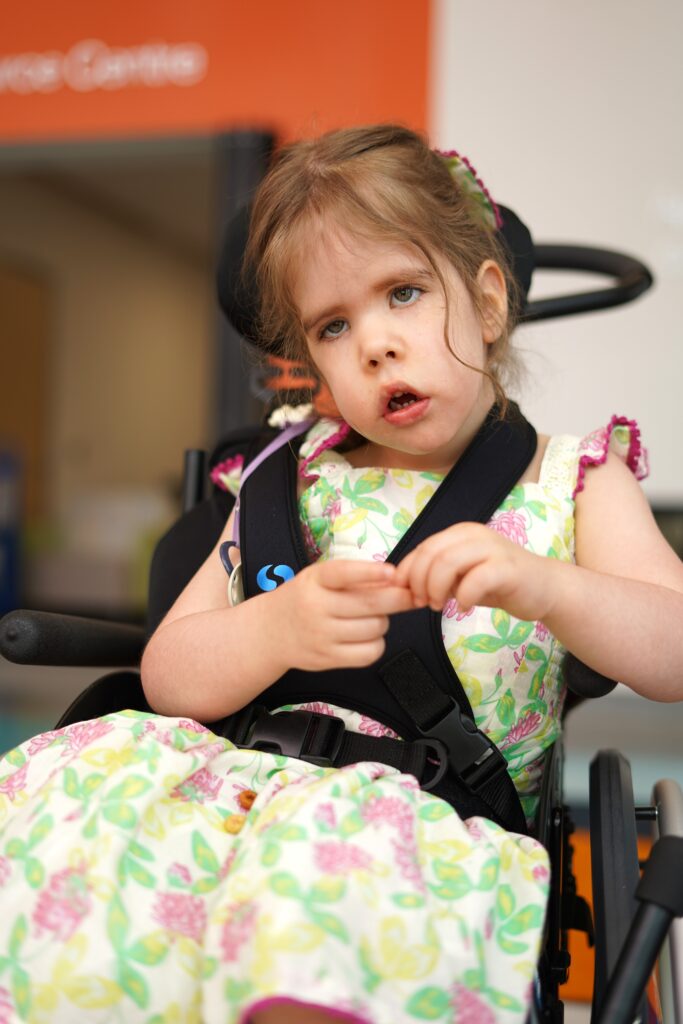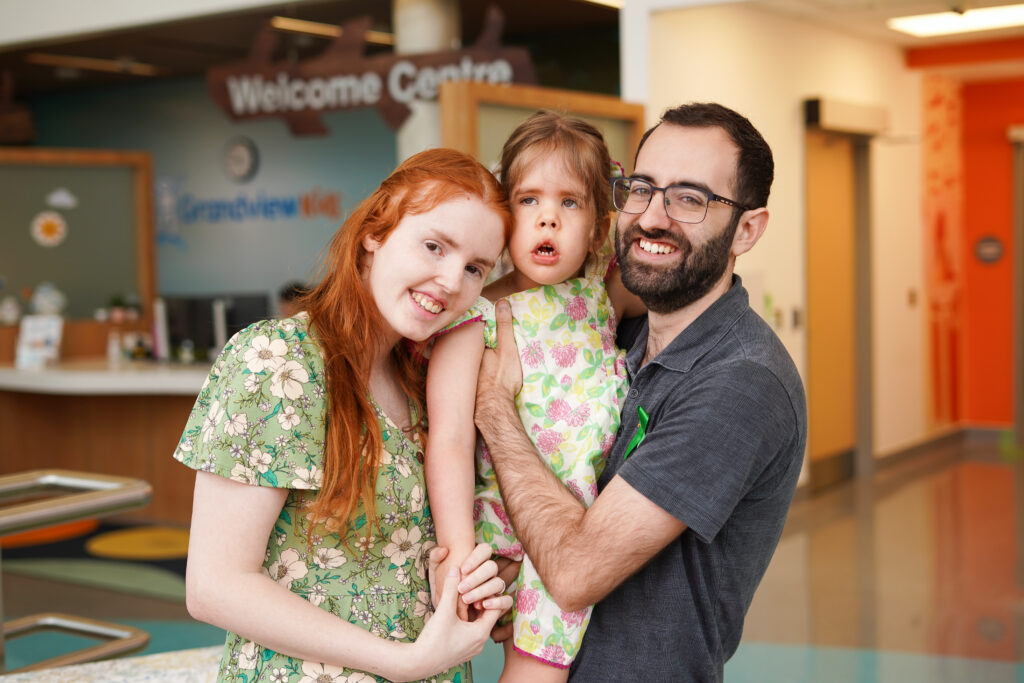Mya is a bright, joyful 13-year-old whose presence lights up any room. Though she uses a wheelchair, communicates non-verbally and is fed through a g-tube, these details are only part of her story. What truly defines Mya is her love for music, her quirky sense of humour and the way she connects deeply with the people around her. Whether it’s the beat of an Imagine Dragons song, a silly moment with her brother Nicholas or receiving a compliment that makes her smile, Mya’s joy is unmistakable and contagious.
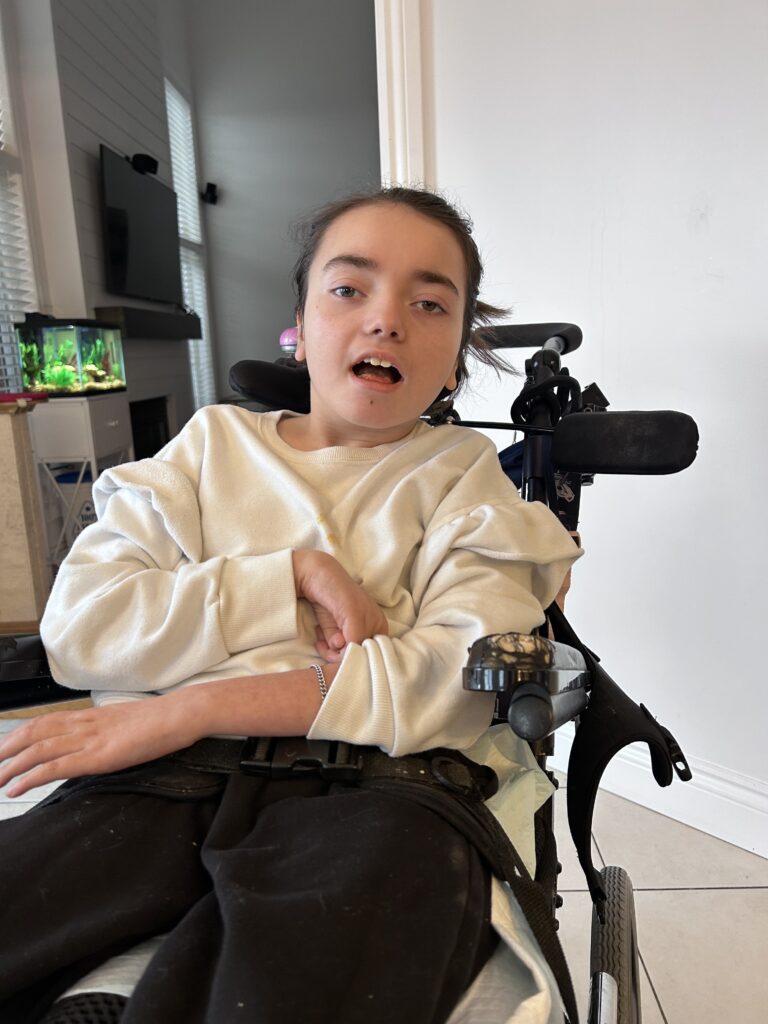
Mya lives in Durham Region with her parents, Karen and Matt, her fun-loving 11-year-old brother Nicholas and their beloved dog and cat. She’s an easygoing, joyful soul who finds comfort in music, stories and connection. When things get tough, all it takes is a song or a silly moment with her brother to bring out her signature laugh, often laced with a sharp sense of sarcasm that only those closest to her can truly appreciate. “She loves people, music and being read to. We know when she wants something even without words. She makes it clear to us through her vocalizations and facial expressions,” says Karen.
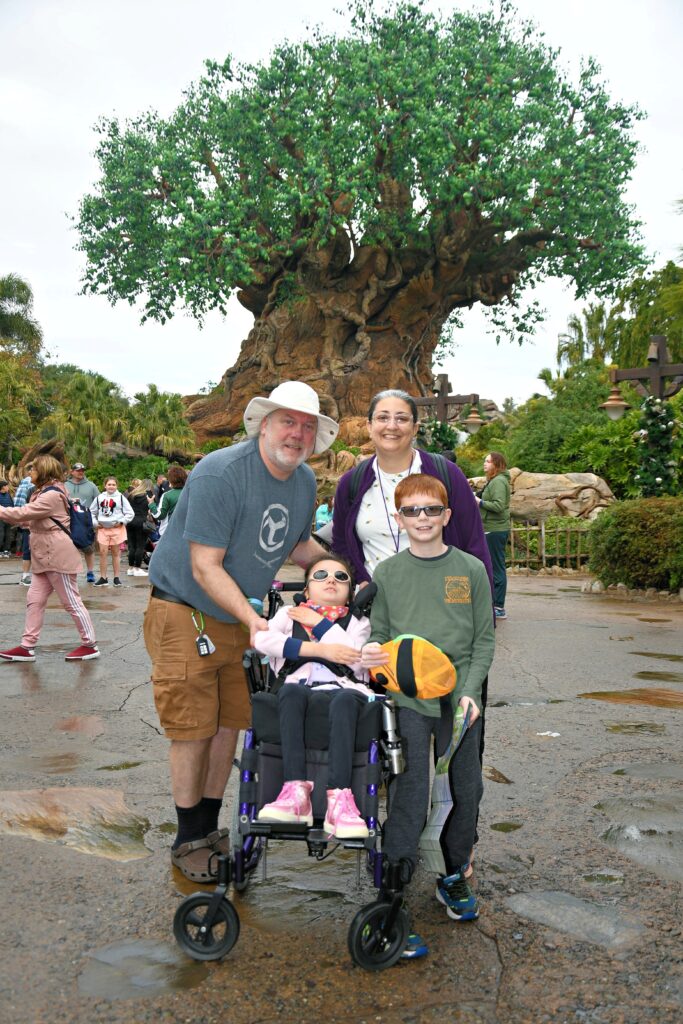
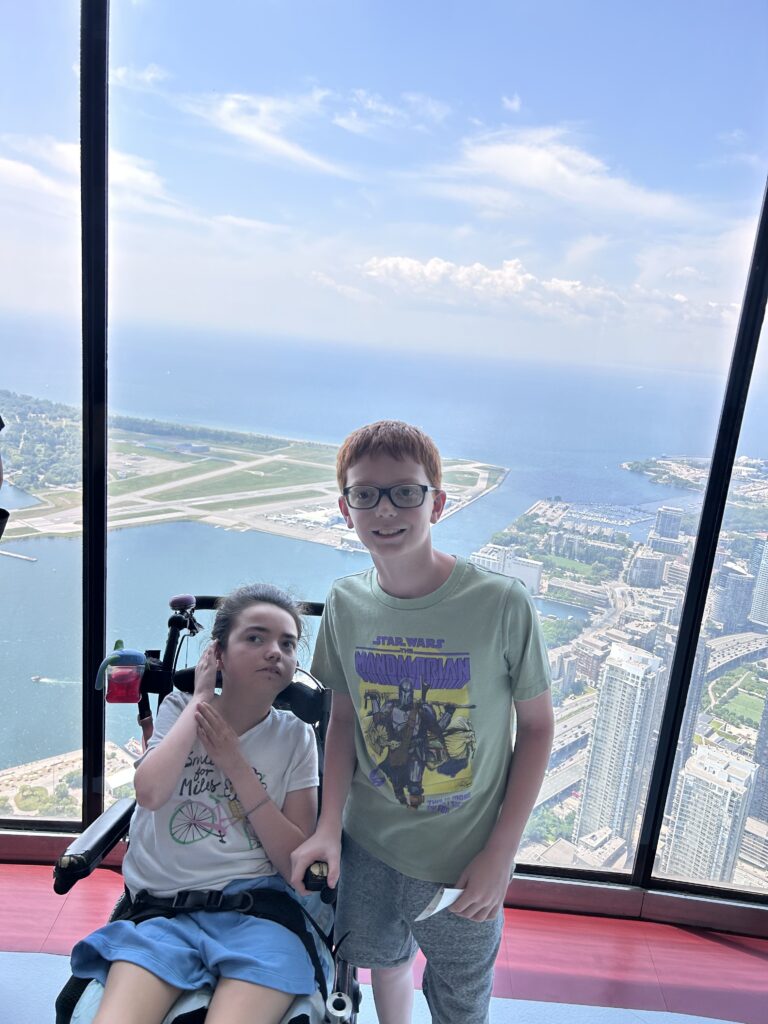
At 15 months old, Mya was diagnosed with Rett Syndrome, a rare genetic disorder that primarily affects girls and impacts nearly every aspect of development. Children with Rett Syndrome are often born without any apparent concerns, only to start losing acquired skills such as speech, movement and even the ability to functionally use their hands as they grow older. As they age, the loss of skills stabilizes, but they do not gain any extra skills. In Mya’s case, her development plateaued around six months. She had learned to sit up but then lost the ability. Karen, trusting her instincts, pushed for answers early. Her paediatrician acted fast and referred her to SickKids for genetic testing.
“A lot of kids with Rett [Syndrome] are first diagnosed with autism,” Karen explains, “but our doctor saw it right away.” Diagnosed with Rett Syndrome at just 15 months old, Mya began losing developmental skills, such as sitting up and self-feeding. She does not walk, feed orally, speak or have purposeful use of her hands. She has seizures, is g-tube fed and communicates primarily through a computer that tracks her eye movements. Though physically limited, her personality shines through in unexpected ways, from cheeky jokes via her eye-gaze device to a mischievous smile when her brother gets in trouble. “She uses her communication computer to ‘mess’ with people,” Karen laughs. “She’ll repeatedly say ‘all done’ during therapy, just to get a reaction, then giggles about it. That’s her sense of humour.”
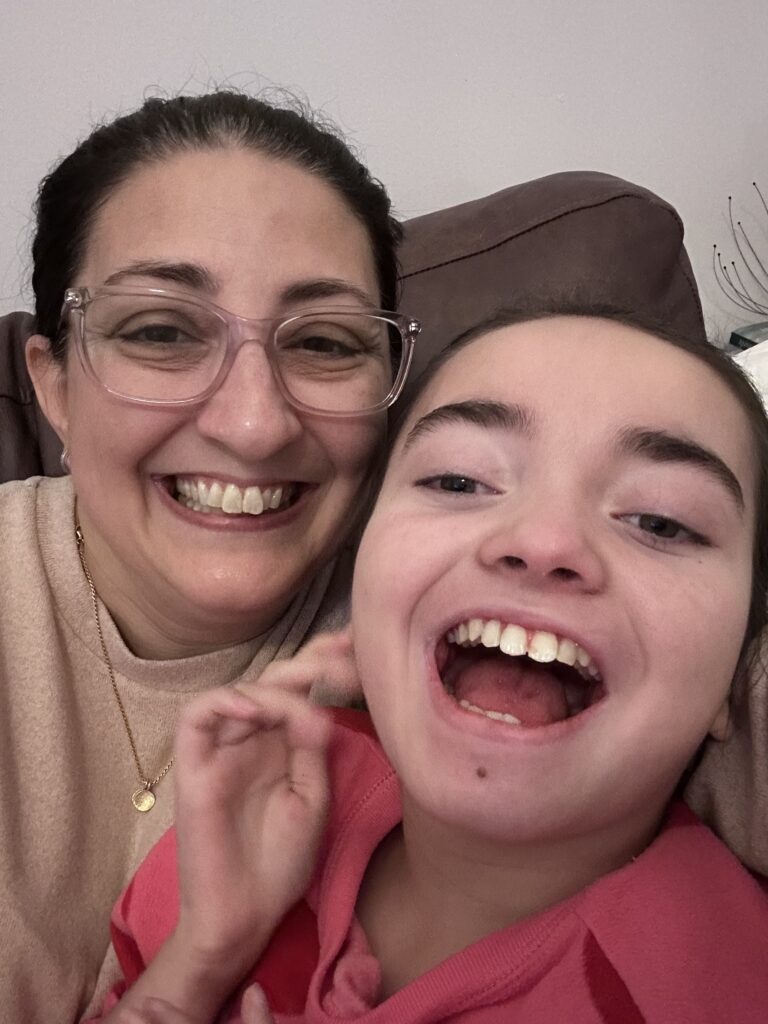

Mya’s condition includes apraxia, a frustrating disconnect between her brain’s commands and her body’s ability to respond. Whether it’s using her eyes to choose a word or reaching toward a toy, it takes an incredible amount of effort. Yet she tries every single day. “She’s trapped in her body, but she’s fully there. You can see her fighting to connect thought and action,” Karen says.
Despite these challenges, Mya thrives with the proper support. She is fully present, deeply expressive and surrounded by a family that advocates fiercely for her happiness and quality of life. She attends a regular school every day, takes the bus and is known for her love of socializing. Her home has been modified to meet her needs with a bedroom and accessible bathroom on the main floor, complete with a lift. Music remains her greatest comfort. When she’s agitated or tired, the family turns on her favourite songs to calm and soothe her.
Within a month of her diagnosis, Mya’s family was connected to a team of specialists at Grandview Kids. From physiotherapy and occupational therapy to feeding consultations and a Botox® clinic, Grandview Kids has helped her and her family navigate each new stage of care. Today, Grandview Kids provides Mya with School-Based Rehabilitation (SBR), helping her stay mobile and comfortable both at school and home through the provision of appropriate equipment and modifications to help her live the fullest life possible.
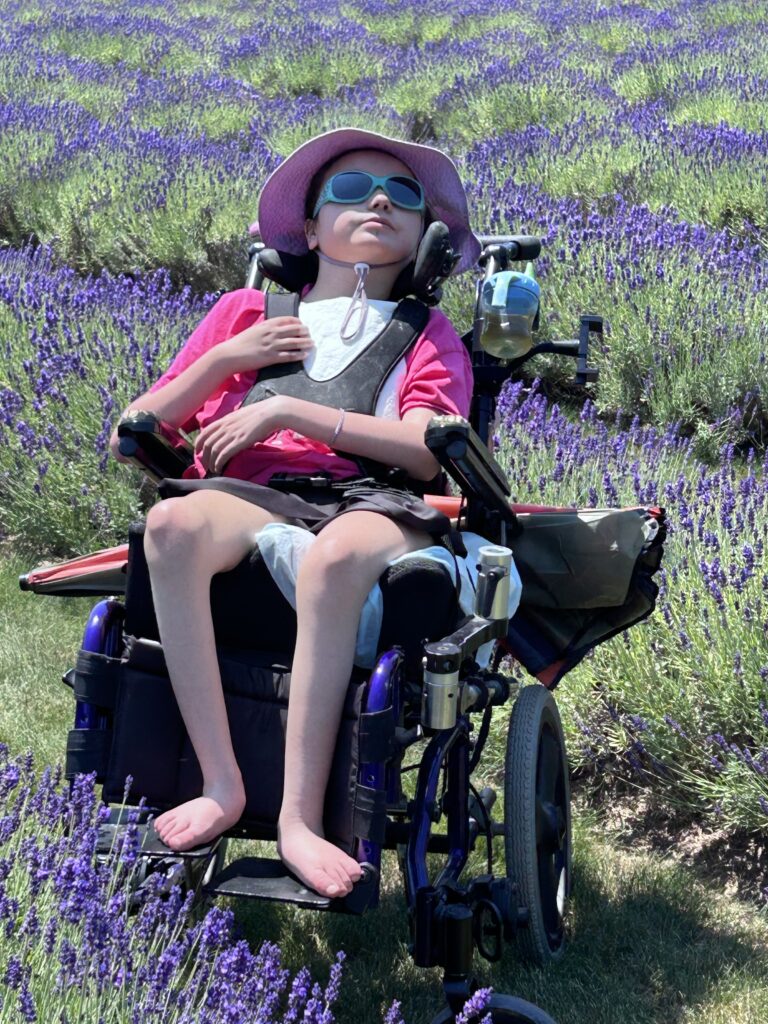
“Any question about therapy, equipment or funding, Grandview is the first place we go,” shares Karen. “They’ve been exceptional, accommodating and so good with Mya.”
In the early days, Karen also found comfort in a Grandview Kids , where she connected with other moms navigating similar challenges. “Talking to people who got it, who were going through it too, was invaluable. I learned so much about what to expect, how to advocate and what to ask for at school. It helped me emotionally, too.”
If Karen could go back to that first heartbreaking day when the diagnosis was confirmed, she’d offer herself a message of hope.
“I’d tell myself: It’s not going to be easy, but it’s not as bad as you think. Your daughter will be happy. Her life will be good. Different – but good. You can do this.”
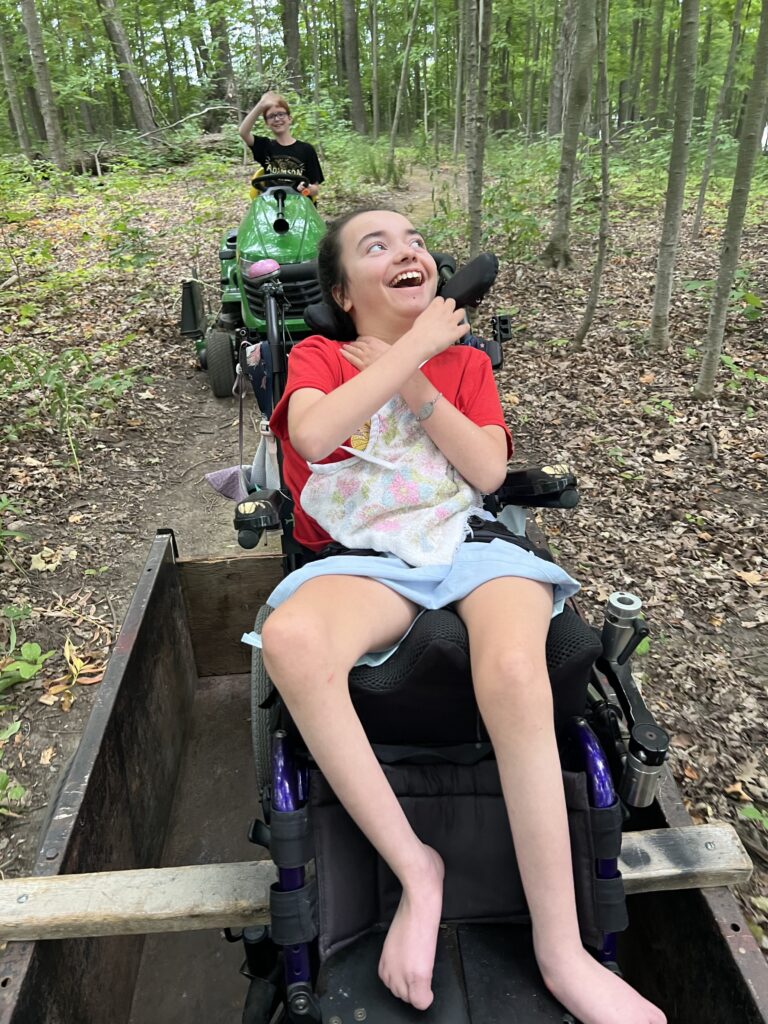
Mya is now facing major surgeries to stabilize her spine and hips, common among girls with Rett Syndrome due to scoliosis and muscle atrophy. The family is preparing for the challenges ahead, but they’re grounded by the joy Mya brings into their lives every day.
“She’s content, comfortable and knows that she’s loved,” Karen says. “You still worry, of course, but when you see her smiling, it’s hard to feel devastated. We’re lucky in so many ways.”
Rett Syndrome affects approximately 1 in every 10,000 female births. Though there is no cure, promising gene therapies and new treatments are on the horizon. Families like Mya’s continue to push for research, resources and better care coordination. In the meantime, the support of organizations like Grandview Kids ensures that children with Rett Syndrome are not just surviving, but living joyful, meaningful lives.
